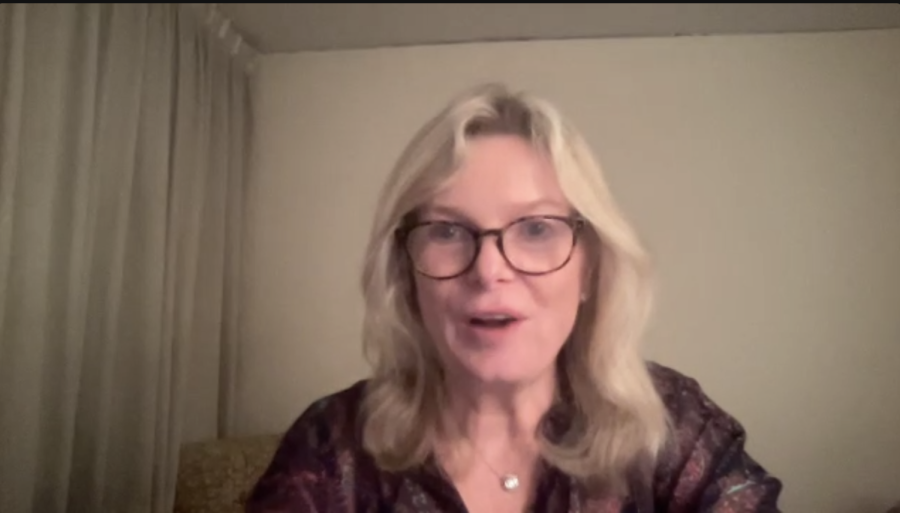Is “Liberal” An Insult?: A Recap of the Recent LePage Webinar
Brian Luppy/ Villanovan Photography
A member of the panel speaks at the Lepage Center’s recent webinar event.
February 22, 2023
Villanova’s Albert LePage Center for History in the Public Interest recently hosted an interesting webinar entitled “When did ‘Liberal’ Become a Dirty Word?” It discussed the history of liberalism and how the term has changed to become an insult. Three esteemed professors from other universities contributed to provide a comprehensive understanding of how this history connects to the modern political climate.
Dr. Helena Rosenblatt, a professor of history, political science and French at the City University of New York, opened the panel with a brief history of the creation of the word “liberalism,” tracing back to the French Revolution. At the time, a person who abided by “liberal” principles was one who wanted to replace monarchy by divine right with constitutional government and, through a “revolution of media,” as Rosenblatt puts it, was attacked for believing so. In this extremely polarized context, the word “liberal” was associated with heresy and absurdity, and was used by counter revolutionaries to vilify their opponents.
Dr. David Greenberg, a professor of history at Rutgers University, continued the conversation by explaining how this “attack” on liberals parallels not only the political climate of today, but also that of the 20th century. The emergence of the “New Left” in the United States in 1965 included individuals who, through use of sometimes violent demonstrations and candid declarations of governmental structures as “shams,” were deemed “radical liberals” by the conservative coalition that continued growing throughout the 1970s and 1980s. Such an unreserved movement allowed republican presidents Richard Nixon and Ronald Reagan to facilitate the narrative of disdain towards liberalism.
Dr. Nicole Hemmer, an associate professor of history at Vanderbilt University, contextualized this political tension within the 1990s and the 2000s. She argued that through the end of the Cold War, the partisan sort and rise of rightwing media, a common distaste for communism, a term sometimes considered with liberalism, further bonded the conservative coalition against liberals and spurred a continued attack on the group. This binary was further exacerbated by the partisan sort of liberals and conservatives into the democratic and republican parties respectively, and also by the prevalence of conservative media, broadcasting critiques of liberalism all over the country.
The professors explored not only the historical context of the negative connotations of the word “liberalism,” but also the multiple meanings that the word can hold.
Kara McGoldrick, a freshman in the College of Liberal Arts and Sciences, thought that the multifaceted essence of the word was interesting.
“I appreciated the distinction made between ‘liberal’ in reference to the political ideologies associated with the democratic party and ‘liberal’ in a more philosophical sense, describing the U.S. as a liberal nation overall,” McGoldrick said.
Indeed, this differentiation makes clear the specific definition of the word commentators of American politics often use when observing the past and current tension between liberals and conservatives.
Dr. Paul Rosier, a professor of history at Villanova University and director of the LePage Center, organized the webinar and found it both interesting and informative.
“It was a highly stimulating discussion,” Rosier noted. “[The discussion] between the panelists that followed the individual presentations was both engaging and enlightening.”
He also stated the importance of the relevance the topic has to the modern day political climate.
“The panelists emphasized…the opposition [to liberalism] this history has engendered in the 21st century from critics on both the right and the left,” Rosier said.
This parallelism was perhaps one of the most important takeaways from this webinar. The connections between the history of liberalism as an insult and how these themes present themselves today are crucial in understanding political discourse, especially within the polarizing atmosphere between parties.


